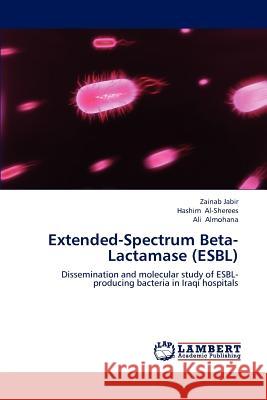Extended-Spectrum Beta-Lactamase (ESBL) » książka
Extended-Spectrum Beta-Lactamase (ESBL)
ISBN-13: 9783659160264 / Angielski / Miękka / 2012 / 132 str.
Extended-spectrum β-lactamases (ESBLs) are the enzymes that hydrolyze a wide variety of β-lactam antibiotics including oxyimino-cephalosporins and monobactams. Infections caused by ESBL-producing strains are increasing in the community and in hospitals. These organisms are typically multi-drug resistant and the risk of inadequate empiric therapy. In Iraq, infections caused by ESBL-producing bacteria have increased dramatically and have become a serious problem nationwide. Therefore, there is an increased demand to determine the distribution of these organisms in community and hospital infections. This book provides a detailed data on the dissemination of ESBL producing strains in Iraqi hospitals as well as detection some genetic factors controlling production of these β-lactamases.
Extended-spectrum β-lactamases (ESBLs) are the enzymes that hydrolyze a wide variety of β-lactam antibiotics including oxyimino-cephalosporins and monobactams. Infections caused by ESBL-producing strains are increasing in the community and in hospitals. These organisms are typically multi-drug resistant and the risk of inadequate empiric therapy. In Iraq, infections caused by ESBL-producing bacteria have increased dramatically and have become a serious problem nationwide. Therefore, there is an increased demand to determine the distribution of these organisms in community and hospital infections. This book provides a detailed data on the dissemination of ESBL producing strains in Iraqi hospitals as well as detection some genetic factors controlling production of these β-lactamases.











